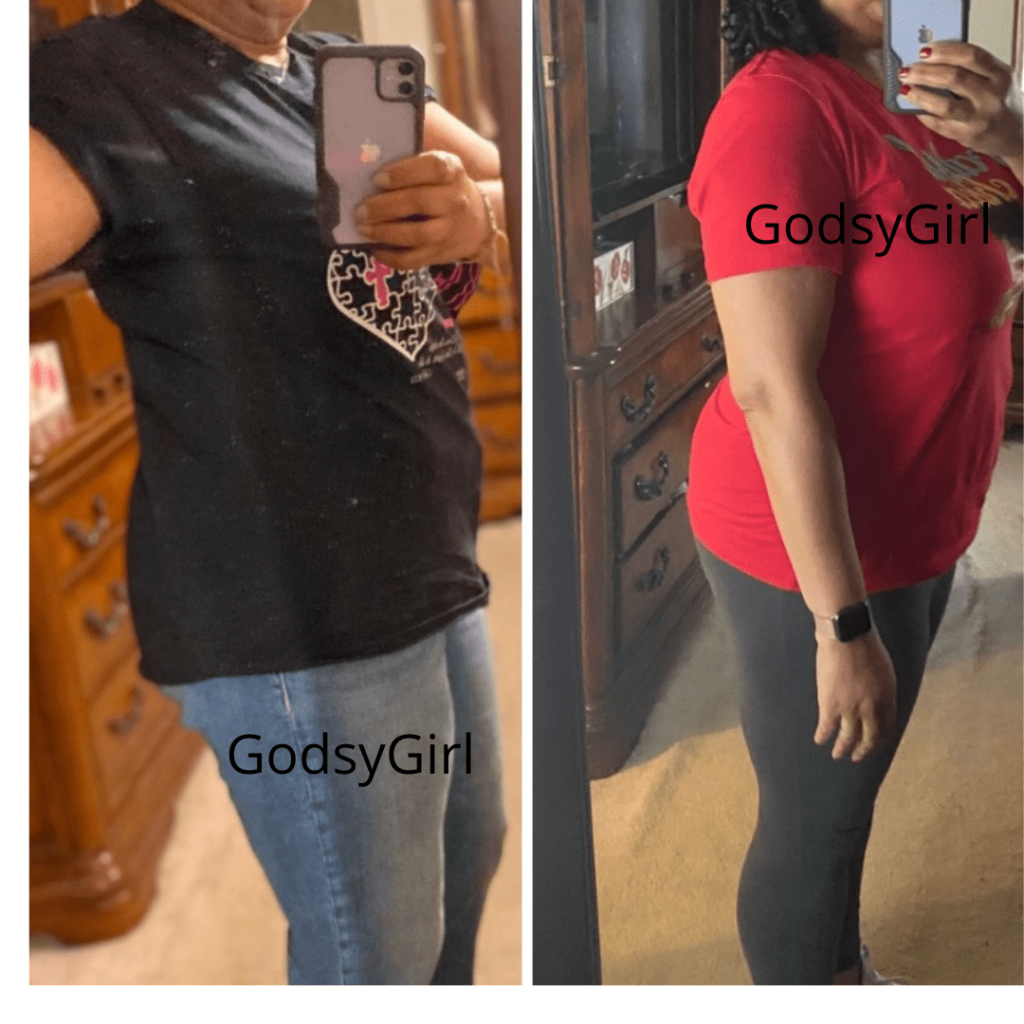

Dealing with weight loss comparison can be a major roadblock on your journey to a healthier you. Instead of getting discouraged by the perceived success of others, it’s crucial to recognize and embrace the unique path to weight loss that’s right for you. Weight loss comparison is a common struggle for many individuals aiming to achieve their health goals. It often leads to feelings of inadequacy, frustration, and potentially even jeopardizes overall well-being. This article explores how to effectively navigate these comparisons by focusing on your own personal journey, establishing healthy habits, and maintaining a positive mindset. We’ll cover strategies to manage negative emotions and build a sustainable weight loss plan tailored to your individual needs. The structure of this article will cover the common pitfalls of weight loss comparison, provide evidence-based strategies for shifting focus to your own journey, and offer actionable steps for establishing positive habits and building resilience.
The Pitfalls of Weight Loss Comparison
The Social Media Effect
Social media often presents an unrealistic portrayal of weight loss journeys. Images and posts frequently showcase idealized versions of success, leading many to compare themselves negatively to others. This comparison often stems from the tendency to focus on external factors rather than internal progress. People may be more likely to compare themselves to those they see on social media, leading them to feel inadequate or discouraged. This pressure to conform to an unrealistic standard can significantly impact one’s self-esteem and motivation. It’s important to remember that everyone’s journey is unique, and comparing yourself to others will only lead to frustration and discouragement. Rather than measuring your progress against others, focus on personal achievements and recognize your own progress and accomplishments.
Unrealistic Expectations and Goals
It’s crucial to establish realistic expectations and goals. Setting unrealistic weight loss targets can lead to disappointment, discouragement, and possibly even feelings of failure. This often happens because of a lack of understanding regarding different body types, metabolic rates, and individual needs. Understanding the physiological nuances of weight loss can help individuals set more realistic expectations. By creating and focusing on attainable goals, you are far more likely to see positive and sustainable results. When setting goals, consider factors like current health conditions, lifestyle, and activity levels, as these all play a role in your success.
Focusing on Your Own Journey
Embrace Your Unique Path
Your weight loss journey is yours alone. It’s essential to recognize that everyone’s journey is unique and influenced by various factors. Acknowledging this individuality is crucial to avoid the pitfalls of comparison. Everyone has different starting points, different goals, different levels of physical activity, different diets, and so on. Instead of comparing yourself to others, focus on celebrating your personal progress and achievements. This emphasis on individuality will cultivate a more optimistic and sustainable approach to your weight loss plan. Focus on creating a plan that’s best for you, and embrace the unique factors of your own journey.
Setting Personal Milestones and Goals
Establish small, achievable milestones and goals along the way. This approach will make progress feel tangible and rewarding. For example, rather than focusing on a drastic weight loss in a short period, set realistic goals that are aligned with a healthy and sustainable lifestyle, such as focusing on a healthier diet, incorporating more physical activity, or achieving better sleep. By breaking down larger goals into smaller, more manageable steps, it’s easier to track progress and create feelings of accomplishment. Celebrate these milestones, big and small.
Building a Positive Mindset for Weight Loss
Understanding Your Emotional Responses
Weight loss can be emotionally challenging. Understand the emotions and feelings that arise during the process. Recognizing and managing these emotional responses is crucial to ensuring a sustainable and positive journey. For instance, identifying triggers that might lead to negative self-talk or feelings of frustration is important for developing strategies to manage them. This will help you navigate any emotional roadblocks effectively.
Cultivating Self-Compassion
Be kind to yourself. Weight loss is a process that requires patience, perseverance, and self-compassion. Acknowledge that there will be setbacks and challenges. It’s vital to treat yourself with the same understanding and kindness you would offer a friend. Avoid harsh self-criticism, instead focusing on the positive aspects of your progress. This will help build a more resilient mindset and sustain motivation during challenging periods.
Strategies for Long-Term Success
Creating Sustainable Habits
Establishing sustainable habits that integrate healthy lifestyle choices into your everyday routines. Incorporating a balanced diet and regular exercise will help create sustainable, and long-term progress, rather than creating temporary changes. The key to weight loss success is to create habits that can be maintained long-term. Avoid drastic or unsustainable changes that are unlikely to be maintained long-term. Consistency is key! Focus on gradual and manageable changes to help your body adjust.
Seeking Professional Guidance
Consult with a qualified healthcare professional or registered dietitian for personalized advice and support. A professional can assess your individual needs and create a plan that aligns with your health goals and lifestyle. They can help you address any underlying health conditions, providing guidance on creating a sustainable approach.
They can help you understand your unique needs and provide insights for improvement.
Maintaining Motivation
Tracking Progress
Track your progress. By tracking your progress over time, you can visualize your personal improvements. Whether it’s through a journal, app, or another method, noting your progress offers you a sense of accomplishment and motivation to stay focused on your goals. This visual representation of progress helps maintain positivity and motivation to keep going. Visual cues of your improvement are extremely important.
Finding Support Systems
Enlist support from friends, family, or support groups. Sharing your journey with others can provide encouragement, motivation, and accountability. Connecting with like-minded individuals can create a sense of community, helping you stay committed to your goals. Connecting with other individuals who are on similar journeys can help you stay motivated.
Q: What are some healthy ways to cope with setbacks on my weight loss journey?
A: Setbacks are inevitable. When you experience setbacks, acknowledge that it’s a part of the journey, and try not to dwell on it too much. Focus on identifying the cause of the setback. Was it a dietary choice or lifestyle change? Once you understand the reasons for a setback, make the necessary adjustments to get back on track. Don’t use a setback as an opportunity for self-criticism, but use it as an opportunity for learning and moving forward. Stay positive and commit to making the necessary adjustments to ensure you are on the right path. Remember that setbacks can also be learning opportunities, helping you adapt and improve your overall strategy.
Q: How do I maintain a positive mindset throughout my weight loss journey?
A: Practice self-care, mindfulness, and celebrate your progress, big or small. Create positive affirmations and focus on your strengths. Visualize your success and remind yourself of your reasons for starting this journey. Be kind to yourself, acknowledge any emotions and work through them. Maintain a support system, and engage in activities that bring you joy. Remember that consistency is key. Maintaining a positive mindset will help maintain motivation and stay committed to your overall goals. By practicing these techniques you will be on the right track!
Q: Why is it important to focus on your own journey rather than comparing yourself to others?
A: Comparing yourself to others often leads to feelings of inadequacy, frustration, and even feelings of failure. Focus on creating realistic goals and recognizing your own progress. This approach will help you cultivate a more positive and sustainable relationship with your body and your goals. Focusing on your own unique journey will increase your own confidence and foster a more positive and sustainable mindset.
Q: What are some actionable strategies for developing healthy habits?
A: Create a realistic and sustainable plan. Include a combination of balanced diet plans and regular exercise in your daily routine. Consider creating a detailed daily schedule that incorporates these activities, and track the steps you take. This will create accountability and consistency. Prioritize sleep. Getting enough sleep is crucial for both physical and mental health and contributes to the ability to make healthy lifestyle changes. Limit your intake of processed foods and focus on natural ingredients whenever possible. By incorporating healthy habits into your routine and following a sustainable plan, you will see results.
This section provides answers to frequently asked questions about dealing with weight loss comparison.
Q: How can I stop comparing myself to others when losing weight?
A: Focus on your personal progress and set realistic goals. Recognize that everyone’s journey is unique, and comparing yourself to others is unproductive. Instead of focusing on the external, focus on the internal changes you are making and give yourself credit for what you have accomplished. Celebrate your personal achievements and be mindful of your own body and emotional responses. Ultimately, this approach will help foster a sense of self-worth and accomplishment independent of others.
In conclusion, focusing on your own weight loss journey is paramount for sustainable results. Comparing yourself to others can be detrimental to your progress and mental well-being. Embrace the unique challenges and triumphs of your own path. Remember to listen to your body, celebrate milestones, and stay committed to your goals, and remember to consult with a healthcare professional or registered dietitian for personalized advice. By focusing on self-improvement, you will ultimately reach your optimal health goals. Ready to embark on your personalized weight loss journey? Visit our website for more resources and support!